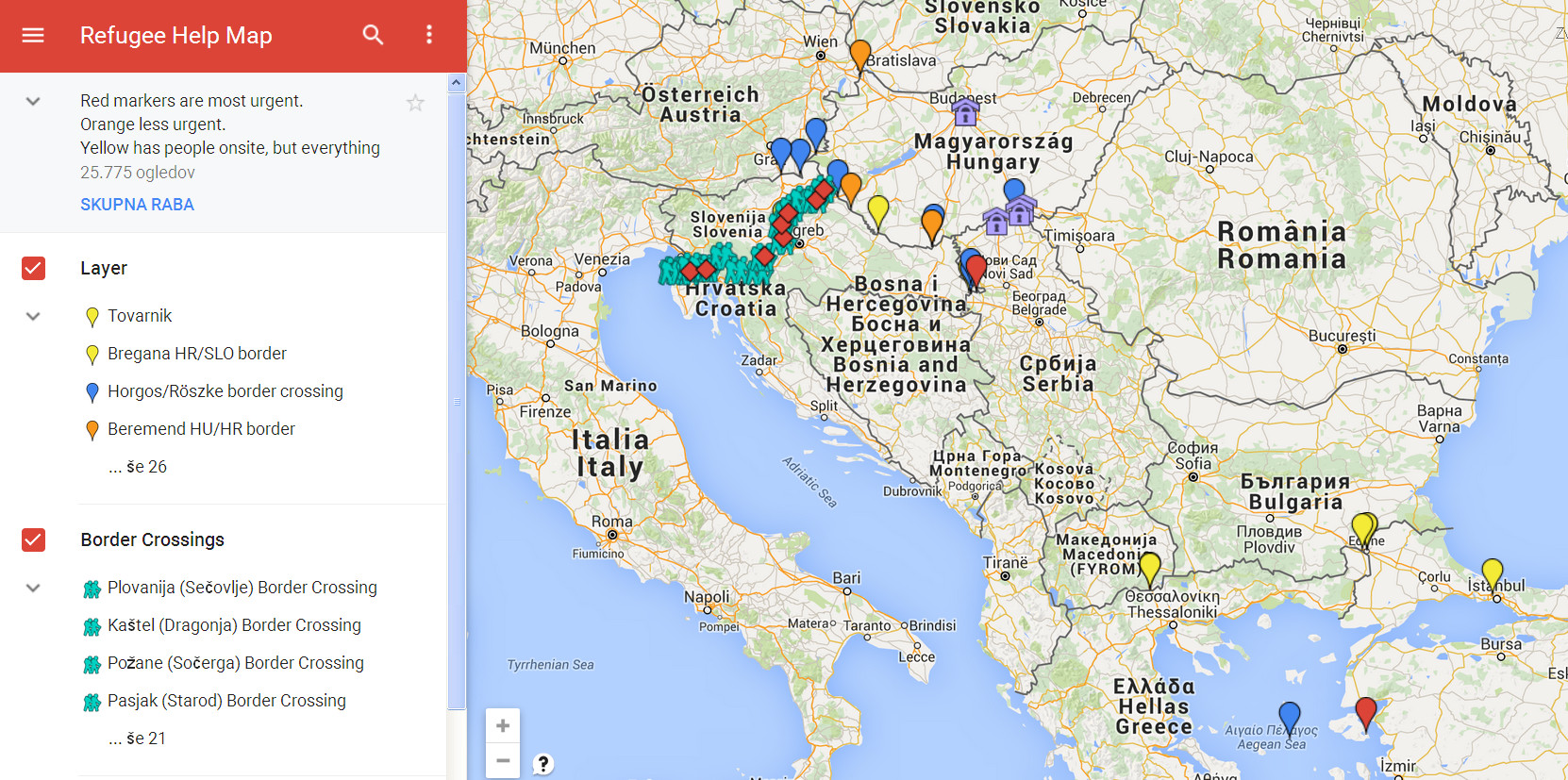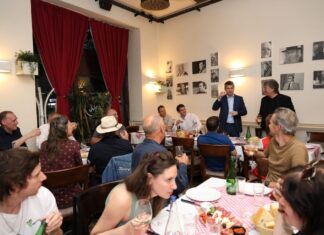Digital Diplomacy is a topic that, for most people, conjures up images of embassies conversing with foreign governments and broadcasting information, messages and well — propaganda — to impact foreign policy goals.
I covered the challenges that the U.S. Embassy in Cairo faced using social media in an earlier article, so I was particularly interested to hear the many perspectives presented by a recent panel discussion on digital diplomacy and how it has evolved since last September.
Last week, the Diplomatic Courier hosted the Digital Diplomacy Forum at the Ronald Reagan Building and International Trade Center in Washington, DC. During this forum, an impressively broad-ranging panel discussed the future of digital diplomacy from the perspective of top ranking diplomats, social media and best practices. This forum greatly expanded limited definitions of digital diplomacy. The conclusion? You don’t have to be a government, large business or super influencer to have international impact. Social media has given everyone a voice.
My colleague and Forbes 2013 Influencer, Ann Tran was one of the panelists. We decided to co-author this article to merge our differing perspectives.
From Ann:
It was my first experience working with a team of panelists in this type of forum, and holding court with people well-versed in the political arena. The lively debate was led and moderated by Washington D.C.-based freelance journalist Joshua Foust, and the panel members included: David Darg, Co-Founder of RYOT.org; Mary Kane, President and CEO of Sister Cities International; and Evan Kraus, Executive Director of Digital Strategy at APCO Worldwide. Ana C. Rold, Editor-in-Chief of The Diplomatic Courier, introduced the panelists.
The panelists all came from different backgrounds, which insured the discussion would be broad from the outset. It was debatable whether the term “digital diplomacy” applies only to politics, or if it has become intertwined with all aspects of social media. From my perspective, I think the forum discussion went very well. The audience was very engaged throughout the debate, and had arrived with open minds. William and Mary students as well as Washington, D.C. business leaders asked many detailed questions, wanting to learn more about social media.
Sean Evins, a member of Twitter’s Government and News Team, attended the event, and sent the following tweet to Diplomatic Courier:
@diplocourier thx. Gr8 seeing 50%+ of room live tweeting+hashtag on program #bestpractice #DiplomacySM lRT @Evins http://twitpic.com/cww9e1
The appearance of a Twitter employee at the event made it obvious to the attendees — both those in the room and those following on social media — that technology is now an integral part of everyday life.
Another Tweet I found interesting from the event was during the keynote speech by Ambassador Paula J. Dobriansky, Senior Fellow at Harvard University’s JFK Belfer Center. The Diplomatic Courier posted an astute quote from Secretary of State John Kerry: Amb. Dobriansky: Maybe #digitaldiplomacy doesn’t need to be the term. It is now just #diplomacy. #DiplomacySM
From Jean:
We are all now witnessing worldwide events in real time, without filters. How does a country, a business, a nonprofit or an individual use digital diplomacy on a global scale to gather information and achieve goals?
The topic is hot, but one so amorphous and wide ranging that even choosing a panel to discuss it is daunting. Kudos to The Diplomatic Courier, who put together a stellar panel proving an important basic tenet: social media has given everyone a voice. How we all use that voice is the discussion.
Ambassador Dobriansky’s keynote challenged all present to step back and evaluate the world’s new communication tools, and the breadth of these new tools. She cautioned that the environment, sources and medium for communicating are now boundless and accelerating at warp speed.
One particular discussion resonated with everyone present. Is social media all about “a race to go viral”? Not any longer, all panelists agreed. In the international forum, social media success is measured not in numbers, but in interactions with new and expanding audiences. Gaming the numbers is so last year and numbers so fungible that numbers of followers and even measures such as Klout and Kred are all suspect. Ann Tran pointed out that success for her clients is in new business generated, and is quantifiable. Such measures are more difficult in the diplomatic realm, but some general themes did emerge from the panel.
Building an audience and generating substantive two-way dialog was the primary concern of all present: governmental, private and non-profit businesses and individuals. Social media offers a constant flow of new and innovative ways to do that — be it Twitter, Facebook, Instagram, Tumblr or Snapchat. New boundaries are being crossed as it is reported that Apple’s new operating system will allow cross platform sharing with Weibo, bringing new giants together — and new challenges.
My focus is tourism and travelers use of social media. Digital/social communications have been impactful on the whole tourism industry for years. From evaluating safety of destinations (Tahrir Square) to hotel reviews (Trip Advisor I mean you), crowd sourcing has had tremendous economic impact on all players. Learning to operate and flourish for those in the tourism industry mandates using social media effectively and nimbly-as it is changing hourly.
Surprisingly (and refreshingly to me), the last thoughts expressed resonated throughout the room. Ann Tran noted that while interactions online are important and pervasive, social media is not all online communication. She cautioned that it is about building and strengthening relationships both online and offline. Echoing Ann’s statement was Evan Kraus, who noted that in all realms of digital diplomacy what will prevail and measure success is “trust and capability” online and offline. He also wisely noted that this hasn’t changed since the times of cavemen.
http://www.huffingtonpost.com/jean-newman-glock/are-we-all-digital-diplom_b_3447788.html











